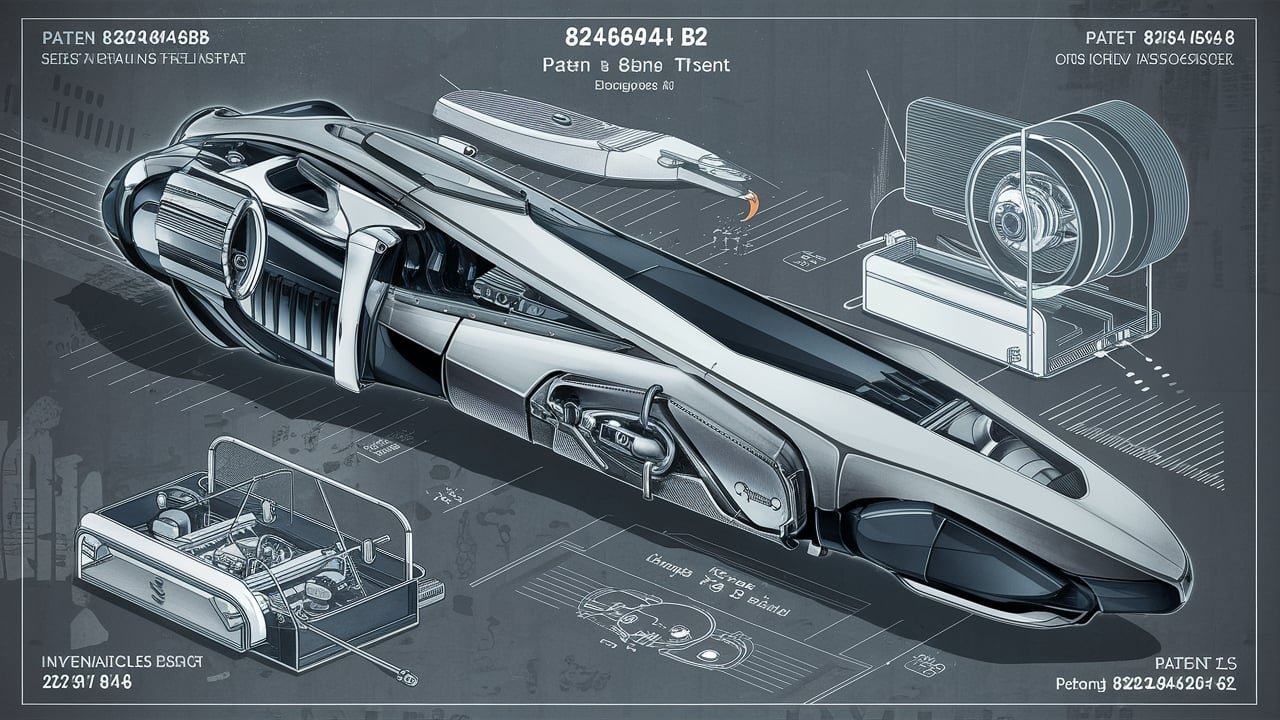Background and Context
The landscape of television advertising has undergone substantial changes over the decades. In the early days, commercials were straightforward, one-way communications designed to inform or persuade viewers about products and services. With the advent of digital technology and the internet, consumer behavior shifted towards more interactive and personalized content. This change necessitated innovations that could bridge the gap between passive viewing and active engagement, setting the stage for the development of systems like the one described in Patent 8246454B2.
The Inventors Behind the Patent
The minds behind this innovative patent are a team of technologists and visionaries dedicated to enhancing user experiences in media consumption. While specific details about the inventors are limited, their collective expertise spans software development, interactive media, and advertising technologies. Their collaborative efforts have led to a system that seamlessly integrates gaming mechanics with traditional advertising formats, showcasing their commitment to pushing the boundaries of conventional media.
Filing and Approval Process
The journey from conceptualization to the granting of Patent 8246454B2 involved meticulous planning and adherence to the rigorous standards of the United States Patent and Trademark Office (USPTO). The application process required comprehensive documentation of the system’s design, functionality, and potential applications. Challenges likely included demonstrating the novelty of the invention and differentiating it from existing technologies. The successful approval of the patent underscores the uniqueness and potential impact of the system in the advertising and gaming sectors.

Technical Specifications
At its core, the system described in Patent 8246454B2 comprises methods and computer programs that enable the conversion of standard television commercials into interactive networked video games. This involves broadcasting or streaming a commercial accompanied by an interactive segment. A media player, connected to the broadcast or streaming source, detects the interactive component and presents viewers with an enhanced mini-game version of the commercial. This mini-game can be played individually or simultaneously with other viewers, fostering a communal gaming experience. The system offers multiple content delivery methods, including inserting the commercial within consecutive frames of the television program or overlaying it on the program, allowing gameplay alongside regular viewing. Importantly, the interactive commercial is designed to conclude within a fixed timeframe, aligning with traditional advertising slots.

Innovations Introduced
This patent introduces several groundbreaking innovations:
-
Interactive Advertising: Transforming passive commercials into active gaming experiences increases viewer engagement and retention.
-
Synchronized Multiplayer Participation: Allowing multiple viewers to engage in the same interactive commercial simultaneously fosters a sense of community and competition.
-
Seamless Integration: The ability to overlay interactive elements onto existing television content ensures that the gaming experience does not disrupt regular viewing.
-
Time-Bound Engagement: Designing mini-games to fit within standard commercial durations maintains the balance between entertainment and advertising objectives.
Potential Applications
The system outlined in Patent 8246454B2 has diverse applications:
-
Advertising: Brands can create interactive commercials that engage viewers more deeply, leading to higher recall and conversion rates.
-
Gaming Industry: Game developers can collaborate with advertisers to design mini-games that promote products while providing entertainment.
-
Educational Content: Educational programs can incorporate interactive segments to reinforce learning through gamification.
-
Market Research: Interactive commercials can collect real-time data on consumer preferences and behaviors, aiding in targeted marketing strategies.
Market Reception
Upon its introduction, the concept of interactive commercials garnered significant interest from both advertisers and media companies. Industry experts recognized the potential for increased viewer engagement and the opportunity to gather actionable insights through interactive content. Early adopters experimented with integrating mini-games into their advertising campaigns, observing positive feedback and improved audience metrics. The novelty of combining entertainment with advertising opened new avenues for creative content delivery.


